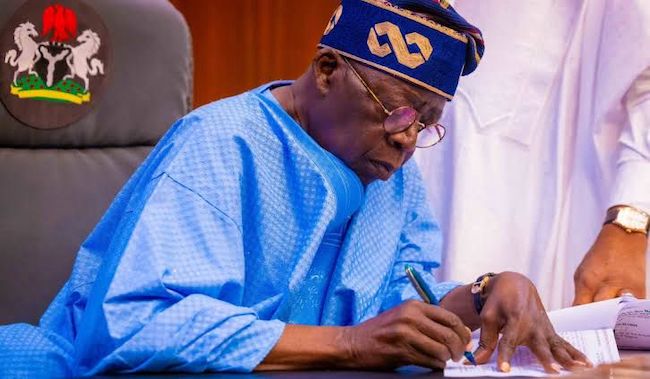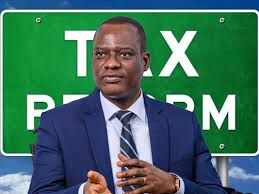To address persistent power outages in Nigeria, President Bola Tinubu has authorized the gradual payment of power sector debts exceeding N3.3tn. The plan includes paying N1.3tn to power generation companies (Gencos) through cash injections and promissory notes. Additionally, the Federal Government will settle about $1.3bn (approximately N1.994tn) owed to gas companies using a combination of cash and future royalties.

Payments to Gencos and Gas Producers
The Federal Government has already started making cash payments to Gencos, with plans to pay the remaining debt through promissory notes over two to five years. This was disclosed by the Minister of Power, Chief Adebayo Adelabu, at the 8th Africa Energy Marketplace in Abuja. The event, themed “Towards Nigeria’s Sustainable Energy Future: Policy, Regulation and Investment,” highlighted the government’s efforts to support the power sector.
Addressing Inconsistent Payments and Policy Coordination
Over the years, the government’s inconsistent payments have led to significant debts to gas companies and Gencos. President Tinubu has directed the Minister of Finance to release N130bn from the Gas Stabilisation Fund as part of the N1.3tn owed to Gencos, with the rest to be paid over time.
Minister Adelabu further explained that the payment of $1.3bn in legacy debts to gas producers would be sourced from future royalties and income streams in the gas sector, a solution that has been accepted by the gas suppliers. He emphasized the importance of firm contracts between gas companies and Gencos to ensure consistent gas supply and power generation.
The minister also addressed the lack of policy coordination in the power sector and assured that the current administration is committed to removing obstacles. He justified the recent Band A tariff hike, affecting only 15% of Nigerians, as necessary for achieving the administration’s power reform agenda.
Future Investments and Call for Power Sector Emergency
With the generation of 700MW from the Zungeru hydroelectric power plant, Nigeria’s Electricity Supply Industry has achieved a milestone of 5,000MW. The government’s plan to pay off the N1.3tn debt to Gencos with cash and promissory notes is expected to encourage further investments in power generation.
In February, Minister Adelabu highlighted the need for a cost-effective tariff model, noting that Nigeria owed N1.3tn to Gencos and $1.3bn to gas companies. On March 1, 2024, The PUNCH reported that the Federal Government had paid $120m out of the $1.3bn owed to gas companies.
Nigeria’s power supply issues are largely due to reduced gas supply, as gas producers stopped supplying due to unpaid debts. Nigeria relies on thermal power plants for over 70% of its electricity, with the remainder coming from hydropower.
At the 7th Nigeria International Energy Summit in March, Ed Ubong, Director of the Decade of Gas Secretariat, praised the government for paying $120m towards the gas debts. The African Development Bank (AfDB) is also seeking board approval for a $1bn policy-based operation to support the reforms under the new Electricity Act, 2023, which aims to attract sustainable investments and improve the power sector.
Former Minister of Power, Barth Nnaji, and Labour Party presidential candidate Peter Obi, have called for an emergency declaration in the power sector. Nnaji suggested creating a super grid to prevent national grid collapses and emphasized the need for multiple, autonomous grids connected to the national grid.
At the Dele Momodu Leadership Lecture, Nnaji advocated for a 765KV super grid to handle high-capacity power plants like the Manbilla Power Plant. He commended Minister Adelabu for reviving the super grid project and stressed the importance of addressing gas shortages in the power sector.
Read also:
- “I Wanted to Be a Catholic Priest; I’m Returning to My Roots” – Cubana Chief Priest Vows to Turn Over a New Leaf
- “I’ve Never Seen a Child So Determined” – Annie Idibia Celebrates Her 10-Year-Old Daughter, Olivia
- Why Nollywood Actors Die Suddenly – Movie Producer Hope Samuel
- Nigerian Military Declares Foreigner, Halilu Buzu, Wanted For Terrorism, Photo Released
- Thomas Tuchel to Stay as Bayern Munich Coach
- Celebrity Fights on Social Media Are Mostly Planned – Nkechi Blessing
- Singer Olivia Rodrigo Faces Wardrobe Malfunction on Stage
- Mayorkun denies knowing Influencer Nicki Dabarbie, vows to sue her
- ‘2Face, Timaya, D’banj are the Only OGs I Respect’ – Burna Boy Reveals
- Spider Man: Portable converts recent arrest into song, Fans react
- Traditional ‘Oro’ Festival: Lagos Community Advises Women to Stay Indoors on May 16
- Petition: Outraged Nigerians Rally Against Government-Sponsored Wedding of Niger Orphans
- AMVCA 2024: Funke Akindele, Toyin Abraham, Other Celebs Turn Heads With Outfits at Award Ceremony
- How to identify when a child is being bullied



